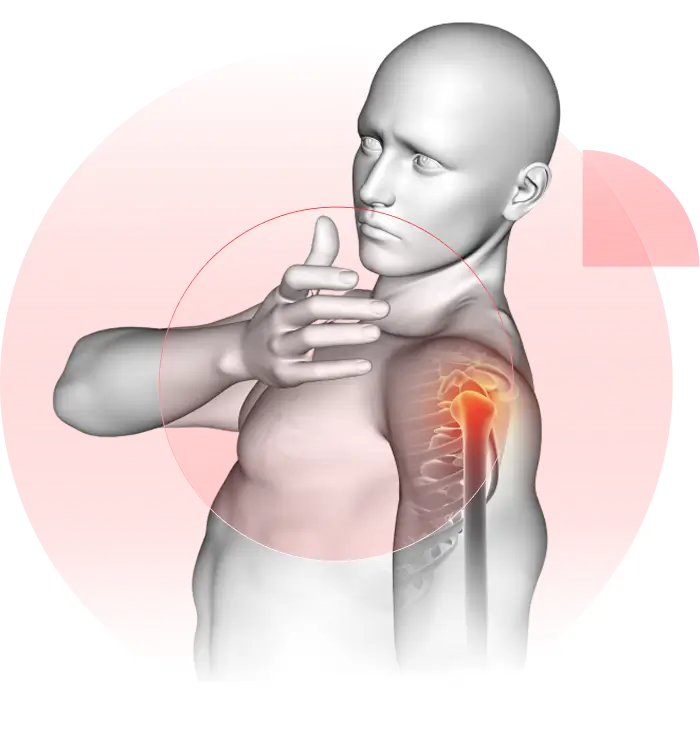Brachial Plexus Injury Specialists in Dallas — Accidents, Sports & Falls
The brachial plexus is a complex network of nerves that control movement and sensation in the shoulder, arm, and hand. Trauma from accidents or falls can stretch or tear these nerves, leading to weakness, tingling, or loss of function. Without timely care, injuries may become permanent. See our Shoulder Pain and Wrist & Hand Pain pages.

Arm weakness or
paralysis
Numbness or tingling
after accident
Shoulder pain with
nerve injury
Loss of grip or fine
motor control
Burning or electric-
shock pain

Nerve conduction and EMG studies
Targeted physical therapy
Cortisone injections for pain
Platelet-Rich Plasma (PRP)
Surgical nerve graft or repair
Request Your Same-Day Brachial Plexus Evaluation
Don’t wait in pain — our expert spine specialists are available for same-day evaluations.
Brachial plexus injuries usually occur when trauma from car accidents, falls, or sports collisions stretches or tears nerves in the neck and shoulder. This can cause pain, numbness, or paralysis. Our specialists use advanced imaging and nerve studies to diagnose injuries and create treatment plans. Learn more about related injuries on our Arm & Shoulder Hub.
If you experience sudden weakness, numbness, or loss of arm movement after trauma, see a doctor immediately. Early evaluation of nerve injuries prevents permanent disability. Our specialists provide same-/next-day visits across seven DFW locations. Learn more about nerve-related injuries on our Brachial Plexus page.
Yes, many mild injuries improve with therapy, rest, and non-surgical care. However, severe tears may require nerve grafts or surgical repair. Our doctors create individualized treatment plans based on exam and imaging. Learn more about non-surgical recovery on our Therapies.
Diagnosis often includes MRI, CT myelogram, and nerve conduction studies (EMG). These tests identify nerve damage and guide treatment. Imaging ensures that therapy, injections, or surgery are matched to your exact injury. See more about imaging on our Shoulder Pain.
Yes. Cortisone injections may reduce nerve-related inflammation and pain, while biologic options like PRP can support healing. Injections are often combined with therapy or surgical planning. Learn more about injection treatments on our PRP.
Without timely diagnosis and treatment, nerve damage can lead to permanent paralysis, chronic pain, or loss of function. Early evaluation allows for effective therapy, injections, or surgery before nerve scarring sets in. Learn more about early injury care on our Arm & Shoulder Hub.